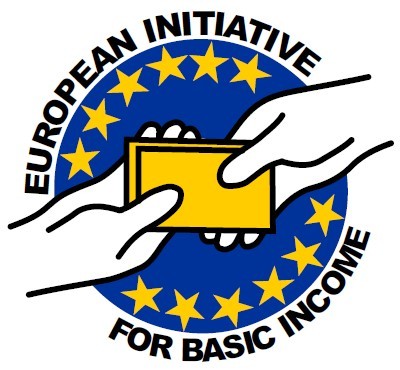While austerity plans become more and more popular in Europe and poverty is on the rise on the continent, a citizens’ initiative in favor of a basic income is also flourishing. Indeed, tired of a welfare system, which does not meet their expectations, some citizens and scholars are strongly convinced that a basic income might represent an alternative.
What is it?
The basic income concept has been attributed different names, such as ‘minimum income’, ‘citizen income’, etc.The BIEN’s (Basic Income Earth Network) definition of the basic income is “an income unconditionally granted to all on an individual basis, without means test or work requirement”.
First of all, it is an income paid on individuals rather than households or families. Secondly, it is paid no matter the other forms of income the person may have. Thirdly, it is unconditional, meaning that there is no form of return inherent to its acquisition. Thirdly, it is unconditional, meaning that there are no inherent obligations attached to it.
These three elements taken together have a considerable significance. Importantly, the role of work would have a different place in the society, since having a job would be a way to increase the income, and not be an end in itself. Indeed, this means that the whole system would grant a greater freedom to the individuals who would have the choice to work.
By providing a basic income which would cover all the basic needs of the person, nobody would be forced to accept a job which does not correspond to his expectations. More importantly, it would alleviate extreme poverty.
A multi-faceted concept
The amount of the basic income is still under discussions. Since it would cover all the basic needs, it would be set according to the considered country’s living standards. The frequency of which people would receive this money is also being debated. In other words, the basic income concept is a multi-faceted concept which can be embodied in different forms and different degrees.
Some examples across the globe have shown that this idea is viable and have led to successful stories, such as in a village in Namibia where significant changes appeared regarding poverty, school attending and crime’s level after the establishment of a basic income. The state of Alaska has been giving a partial basic income to its citizens since 1982. Brazil also passed a law in 2004 to institute a basic income in the country and which is now gradually implemented.
The European Citizenship Initiative (ECI)
ECI is an”invitation to the European Commission to propose legislation on matters where the EU has competence to legislate. A citizens’ initiative has to be backed by at least one million EU citizens, coming from at least 7 out of the 27 member states. A minimum number of signatories is required in each of those 7 member states”. I strongly encourage you to check the details of this institutional mechanism following the link above.
That means that the European Commission will have to examine carefully the propositions, and if it judges it enough convincing and viable, it could legislate accordingly.
The current proposition for a basic income has been launched on the 14th January 2013 with this title: “Unconditional Basic Income (UBI) – Exploring a pathway towards emancipatory welfare conditions in the EU”. Read more here!
The initiators of the proposition have 1 year to collect the minimum of 1 million European signatures, and that is why numerous national basic income networks have been launched to promote the idea.
The criticism
There are several criticisms related to the basic income, as it disturbs our established view of the role of work in the society. Indeed, the basic income would provide money without any obligation of having a job.
This would have several advantages. No hard time trying to make ends meet. No extreme poverty. More time for volunteering, community projects. More time for being citizens of the world. More freedom.
The financing question of basic income is probably one of the most controversial. As I said before, there is no ‘basic income model’; it is a general idea, which tries to unite all definitions on the lowest common denominator. A basic income could be financed by redistribution, by reappropriation of the monetary creation and via a tax on the consumption.The combination of the above items will be dependent on the form/model of the basic income. Numerous academic articles discuss these financial issues and I strongly invite you to consult them.
A very common statement is: “It sounds good, but people will become lazy”. I am convinced that this is not true. Indeed, a basic income will offer a decent life and would cover all the basic needs. But if people want to earn more (and I’m sure a lot of people do), there is still an incentive to get a paid job in order to afford to travel, to be involved in chargeable activities, go to the restaurant, etc. Moreover, being workless does not imply that people will be sitting in front of their television the whole day. They can be involved in a lot of activities of their choice, in activities that they value.
In short
In short, I am not trying to convince you that a basic income is THE solution. I am trying to convince you to forget for a while the very comforting idea that our current welfare system is the only one which exists and that there is no other alternative.
To be honest, I don’t know if a basic income would solve most of our problems; in fact, probably not. However, the idea does definitely deserve to be further researched and debated. The ECI for a basic income represents the opportunity to open up this debate among our European representatives. But it needs to be signed by 1 million European citizens.
I am convinced that this concept is forward-looking and offers some ideas to solve the double challenge of poverty and unemployment. It reflects very universal ideas that we all value, such as humanity, freedom, solidarity. That is why it is worth it.
Text: Lauranne Beernaert
Or check your national BI network.



